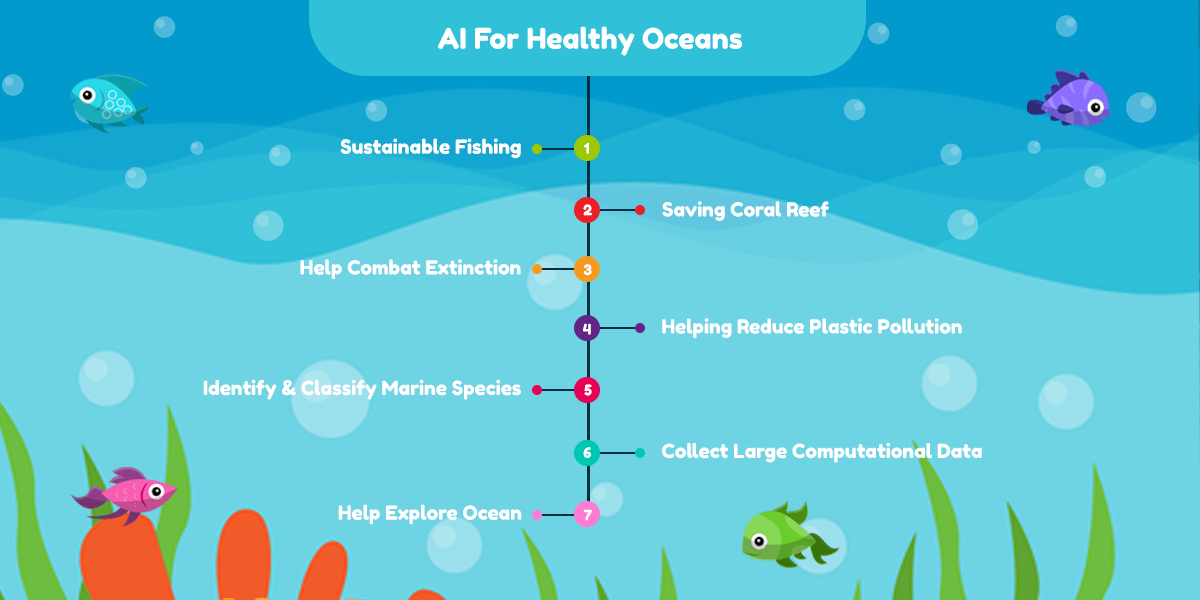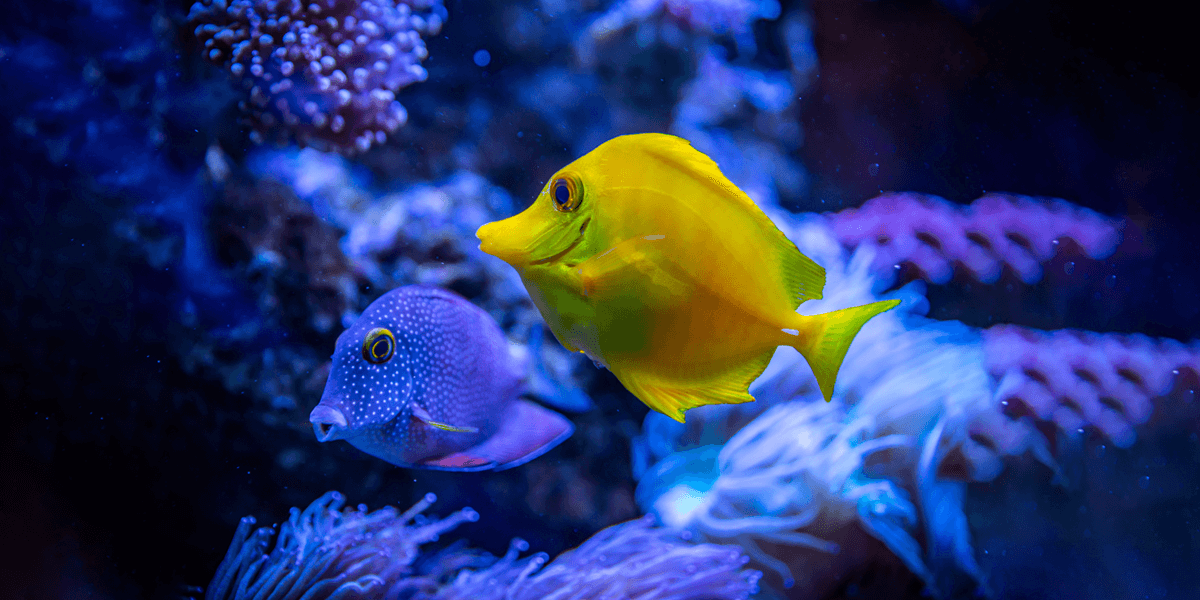71% of our planet is the ocean. Humanity’s future is in the oceans. Oceans drive key planetary systems that affect us on land. Artificial intelligence empowers marine conservationists to dive deep into a new chapter of marine exploration. AI is assisting scientists to address several problems ranging from climate change to overfishing to plastics dumping. Scientists are leveraging AI to collect enormous ocean data and discovering new insights to create solutions.
We enjoy many benefits from oceans, such as getting oil and gas. AI potentials can be utilized to efficiently extract energy resources, discovering new medicines, apprehending climate change, and finding endangered species.
Following are some advantages of AI in the conservation of oceans and marine life:

1-AI to explore ocean:
Around 95% of the oceans are unexplored. Researchers are using AI to investigate and understand those areas of oceans that cannot be reached by us. Researchers use AI algorithms to record data from marine vehicles or camera systems for evaluation. AI helps in identifying new marine animal and plant species living deep under the sea.
- Kaiko is a remotely operated underwater vehicle developed by Japan Agency for Marine-Earth Science and Technology for sea exploration of up to 11000m depth. AI technology helped in uncovering and collecting many biological species that could prove beneficial in medical and industrial applications.
- Crabster is an underwater AI-based robot, developed by the Korea Institute of Ocean Science and Technology, used to rectify faults underwater structures, such as oil or gas pipelines.
2-Collect large computational data and identify marine species:
Researchers are using AI technologies to gather a vast amount of data about the ocean environment, recording temperature, marine life, earthquakes, tsunamis, and many more. Data that cover the entire sea can prove to be very useful for insights into pH changes, identify marine species and patterns, fish stocks information, and more.
- Researchers at North Carolina State University have designed an AI algorithm that can recognize marine species or microscopic organisms.
3-AI helping reduce plastic pollution:
Marine life and oceans are encountering serious damage from plastic pollution. According to researchers, around 1 million seabirds and 100,000 marine animals die due to plastic dumping every year. With the support of machine learning models, scientists could collect more data and analytics to get more meaningful insights. Artificial intelligence is utilized for building more informed strategies to reduce plastic pollution of oceans.

- Ocean Cleanup, a non-profit organization, uses AI tools to help clean oceans by extracting plastic pollution.
- Sustainable coastline, a New Zealand based NPO, is working in collaboration with Microsoft to restore coastal environments. They are using AI to find out the sources, causes, and solutions to coastal pollution.
4-AI to Save Marine Life:
Climate change is not only affecting animal and plant species on land but it has an adverse impact on marine life also. Many marine species are on the verge of extinction. Scientists are applying AI techniques to monitor marine life and mammals to protect them. AI technology could be used to minimize illegal poacher activities.
- Flukebook.org is an online AI-powered research platform that supports the conservationists to study and protect whales and dolphins by providing a common data portal and automatic identification of species.
- OOICloud, a collaborative project by Columbia University and Queens College, provides an AI-powered platform that gives scientists, oceanographers, and conservationists access to a massive amount of data for ocean study and management.
5-Saving coral reefs:
Coral reefs are a diverse ecosystem that provides habitat to over 25% of marine life and are also beneficial to humans in many ways. Due to pollution and other human activities, the health of coral reefs is degrading continuously. Researchers are utilizing artificial intelligence technology to monitor and reinstate coral reefs.
- Accenture, Intel, and Sulubaai Environmental Foundation have collaborated on project CORail, an AI-based solution to watch, classify, and analyze the health of coral reefs. This project collects data from underwater cameras equipped with Video Analytics Services Platform (VASP). Researchers are using AI to detect, count, and classify marine life.
6- Sustainable Fishing:
The world’s fish stocks are decreasing and illegal seafood trade is rising at a rapid rate. To resolve this problem, researchers are taking the help of artificial intelligence to ensure efficient aquaculture and fisheries management.
The Way Ahead:
We hope in the future, we can utilize artificial intelligence at its full potential to make the health of oceans better and solve some of the issues we don’t know exist. Conservationists are harnessing the power of AI to observe ocean dynamics, regenerate it. AI helps us save ocean health. We want to train students with the knowledge of artificial intelligence to prepare them to deploy its power to save the earth.

